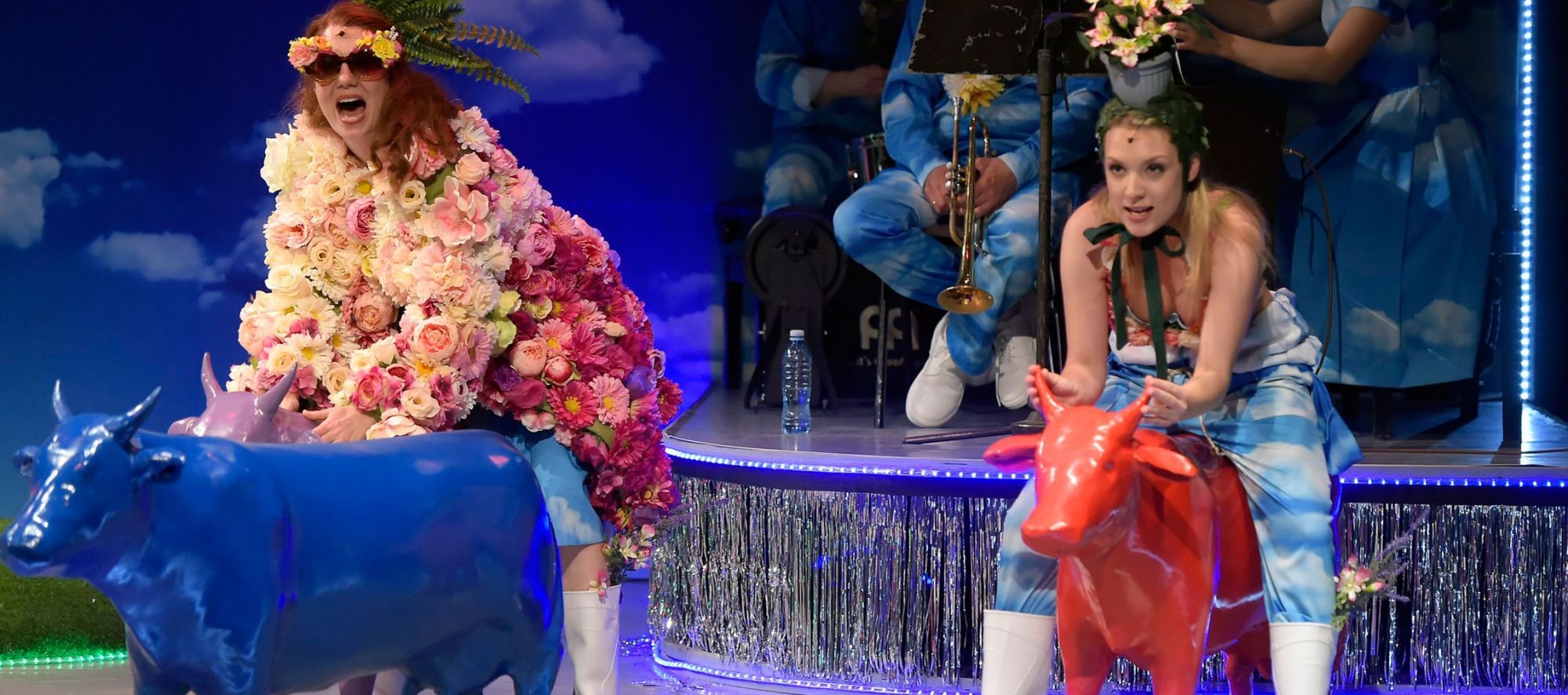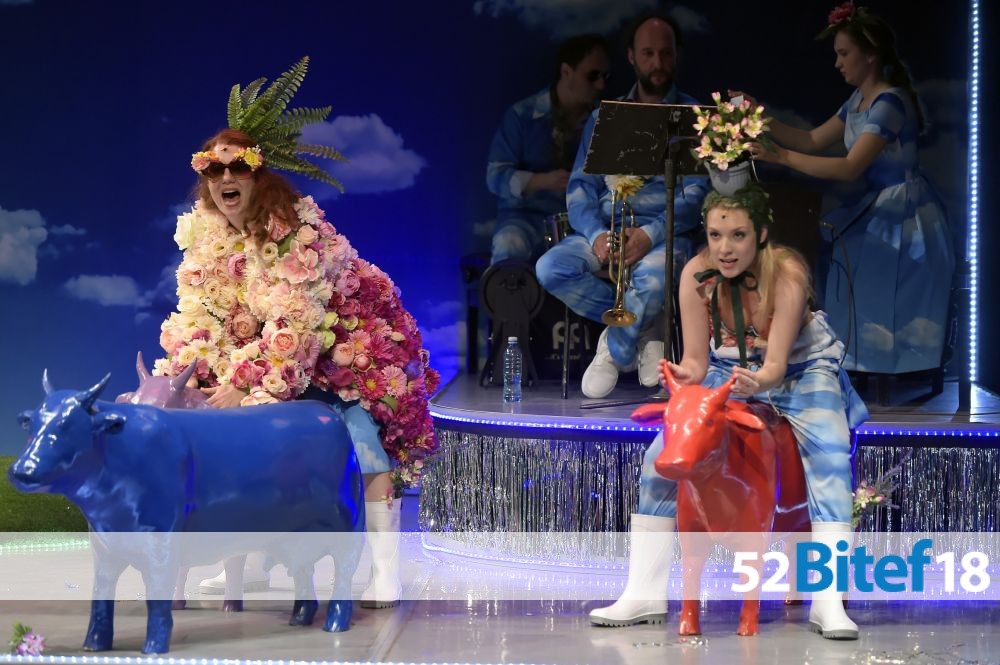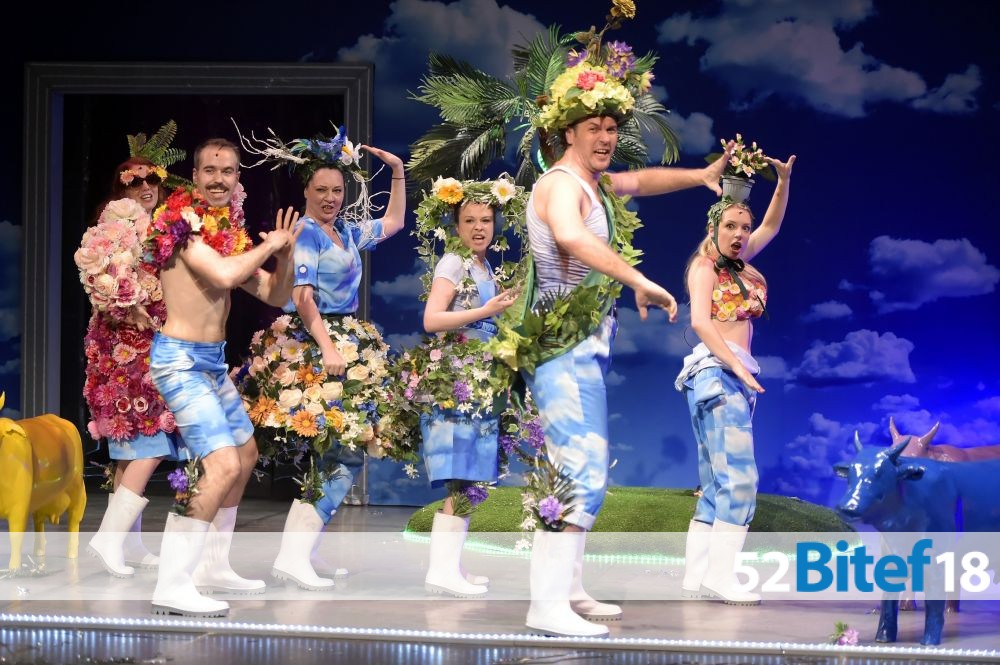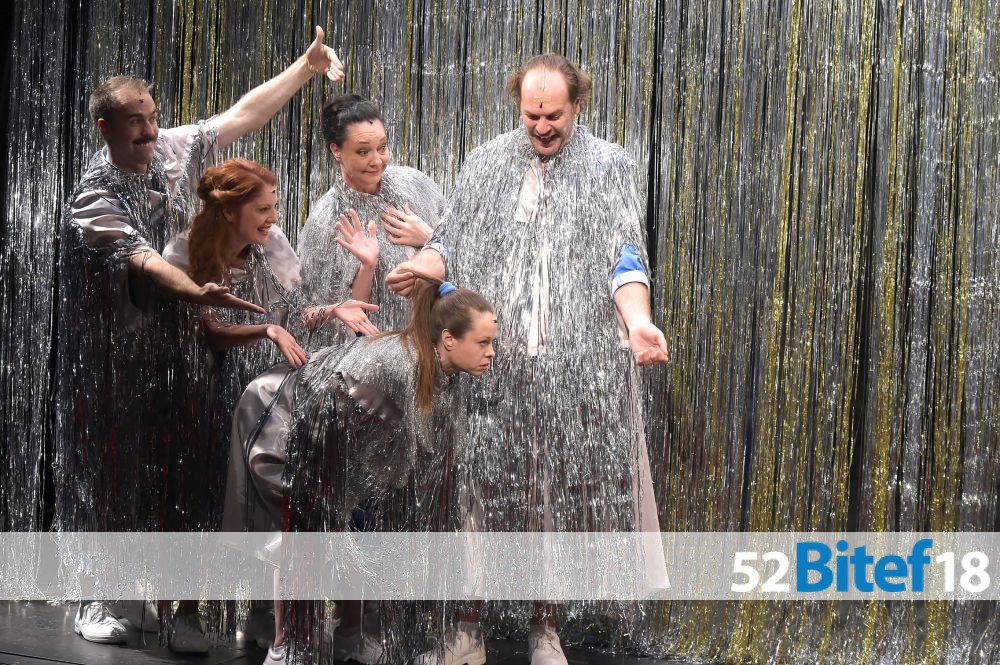ABOUT THE PRODUCTION
Life of citizens in a small town near the border is interrupted by sudden news: a great Bollywood producer is coming to buy a small factory and open a big Bollywood studio there. This would result in many job opportunities, which is something that does not happen often is such a small town. The sudden news brought excitement amongst actors in the theatre, who decide to organize a recital, thus hoping to increase their chances of getting roles in a future Bollywood spectacle. The town is united by a common idea and collective enthusiasm, but life takes its own course - full of unexpected events. Through this fairytale-like utopia of Bollywood’s arrival to our country, a story is told about all of us and about the things we are prepared to do when a better future becomes a prospect. Bollywood’s arrival thus becomes the background for a story about collapse of industry, xenophobia, disreputable privatization process, false worlds, while everything has been portrayed through song and dance under the slogan ‘if they don’t have bread, let them eat cake.’
THE AUTHOR
MAJA PELEVIĆ was born in 1981 in Belgrade. She graduated from the Faculty of Dramatic Arts in Belgrade in 2005 and obtained her Ph.D. Degree at the Interdisciplinary Studies at the University of Arts in Belgrade in 2012. Maja is a member of the New Drama Project. Her staged plays: ESCape, In Neutral Gear, Be a Lady for a Day, Belgrade-Berlin, Orange Peel, I or Someone Else, Jumpgirl, Hamlet Hamlet Eurotrash (with Filip Vujošević), Fake Porn and Fakebook (group of authors), Maybe We Are Mickey Mouse, Strange Loves, Consequences, A Fully Abridged History of Serbia (with Slobodan Obradović) and The Invisible One. Her plays have been translated into English, French, German, Russian, Norwegian, Polish, Slovakian, Czech, Hungarian, Bulgarian, Slovenian and Ukrainian and published in numerous contemporary national and international anthologies. She has worked as a dramaturge in over 20 theatre productions and has dramatized several novels and written texts for four musicals. In 2012, with Milan Marković, she implemented the project They Live - Searching for the Zero Text. In 2013, she has written, directed and performed the play Consequences at the Bitef Theatre Festival. In 2015, she staged My Prizes by Thomas Bernhard in the National Theatre in Belgrade. In 2016, together with Olga Dimitrijević, she staged Freedom Is the Most Expensive Capitalist Word. Maja Pelević won the following awards: Borislav Mihajlović Mihiz Award for dramatic work; Slobodan Selenić Award for best graduation play; Sterijino Pozorje Festival Competition Award for original dramatic text for Maybe We Are Mickey Mouse; Sterija Award for best dramatic text for Orange Peel; and Award of the UNIMA Competition for best original text for The Invisible One for puppet theatre. Maja Pelević lives and works in Belgrade and Bečići.
FROM THE REVIEWS:
Zorica Premate, Politika (Cultural supplement)
Dragana Bošković, Večernje novosti
Aleksandra Glovacki, Radio Beglrade Program 202






Оцените - total votes 0